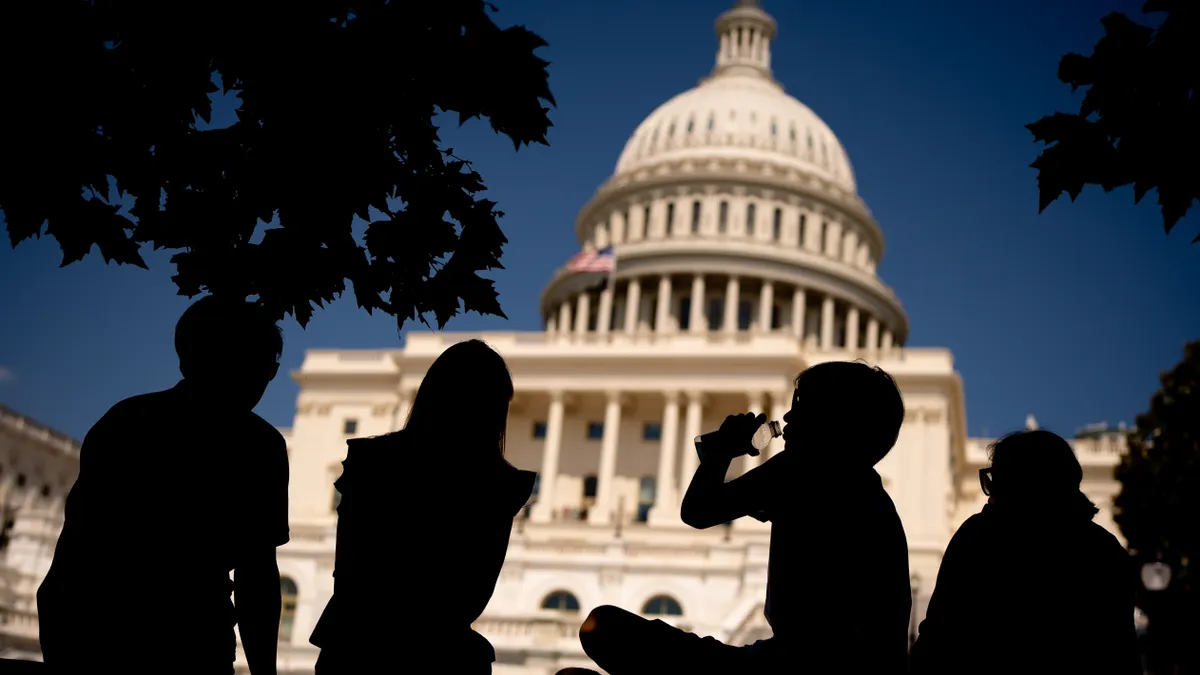Dive Brief:
- Attorneys general from 13 states and D.C. want extreme heat and wildfire smoke to be explicitly recognized by the federal government as eligible for major disaster declarations.
- The change would help state and local governments access federal dollars to prepare for and respond to dangerously high temperatures and poor air quality, the attorneys general wrote in a July 16 letter to top officials at the Federal Emergency Management Agency.
- The request echoes recent calls from city officials nationwide, federal lawmakers and labor, environmental and health groups, as climate change brings more severe, frequent heat waves and wildfires.
Dive Insight:
The federal policy at the center of this debate is the Stafford Act, a 1988 law that guides how the federal government doles out resources in the aftermath of natural disasters.
The language in the Stafford Act technically applies to any natural catastrophe but doesn’t specifically name extreme heat or wildfire smoke like it does hurricanes, drought, earthquakes and several other types of extreme weather events. Neither an extreme heat event nor a wildfire smoke event has ever been recognized by FEMA as a major disaster eligible for federal aid.
The agency’s administrator, Deanne Criswell, has told Congress she doesn’t see a need to amend the Stafford Act to include extreme heat because FEMA primarily looks at whether an event has exceeded state and local response capacity when deciding to authorize a major disaster.
“If the response to an extreme heat incident exceeds the capacity of a state and local jurisdiction, they are very open to submit a disaster declaration request,” Criswell said. “And we will consider that based on whether or not it exceeds their capacity.”
Numerous state and local officials see the issue differently, however. The attorneys general say that explicitly adding heat and smoke into the Stafford Act will provide more certainty to state and local emergency management agencies. That would allow those agencies to make more informed decisions about how to prioritize their emergency management investments.
Arizona Attorney General Kris Mayes, who led the coalition that wrote the July 16 letter, in a statement pointed to a need for more energy bill assistance for low-income customers, cooling centers that are more data-driven and open 24 hours a day and worker protections from heat and smoke.
Meanwhile, the pot of FEMA money that aids communities after disasters is running low, leaving more communities hit by severe weather without any federal aid at all.
The attorneys general also called for FEMA to clarify that wildfire smoke events are eligible for funding under the Fire Management Assistance Grant program, which helps state, local and tribal governments manage wildfires that constitute a major disaster. The attorneys general urged the federal government to consider the burden wildfire smoke places on public health systems.
The attorneys general who sent the July 16 letter to FEMA officials are from Arizona, California, Colorado, Connecticut, D.C., Illinois, Maryland, Massachusetts, Michigan, New Jersey, New Mexico, New York, Oregon and Vermont.












